
When I first decided to take my craft seriously I knew I needed to branch out into the world of colour theory. This terrified me. Growing up, I was trained primarily in drawing. Occasionally, I was exposed to various painting mediums, but came away thinking they were too cumbersome to handle. Finally, I decided that watercolour would be the most approachable of the lot to get into. The paints last longer than acrylic or oil and it’s far more portable when doing plein air work.
Watercolour behaves like no other medium. It can be unforgiving at times while yielding effects and textures that are wholly unique. Maintaining a careful balance of water and pigment is the most difficult aspect to master. Persistence is key, along with curbing the urge to oversaturate your brush.
Colour shape, form and values should be prioritised along with careful brush strokes to avoid creating a muddy, asymmetrical appearance. The success of your washes depend on the watercolour paper you’re using. I find that a cheaper, cellulose-based paper is much more forgiving when it comes to adjustments compared to a higher quality, cotton-based paper, which can have a death grip on the pigments used.
Over time I was exposed to gouache as a secondary medium. This combines the opaque qualities that acrylic and oil offer with the added benefit of being water soluble, similar to watercolours. I enjoy how it enables me to fix or add as I progress through a piece. The mix of both watercolour and gouache combined with a few other mediums makes for a diverse set of tools that can be utilised to tackle even the most advanced of pieces.
Diese Geschichte stammt aus der November 2021-Ausgabe von ImagineFX.
Starten Sie Ihre 7-tägige kostenlose Testversion von Magzter GOLD, um auf Tausende kuratierte Premium-Storys sowie über 8.000 Zeitschriften und Zeitungen zuzugreifen.
Bereits Abonnent ? Anmelden
Diese Geschichte stammt aus der November 2021-Ausgabe von ImagineFX.
Starten Sie Ihre 7-tägige kostenlose Testversion von Magzter GOLD, um auf Tausende kuratierte Premium-Storys sowie über 8.000 Zeitschriften und Zeitungen zuzugreifen.
Bereits Abonnent? Anmelden
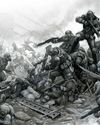
PAINT EPIC BATTLES IN TRADITIONAL INK
Warhammer illustrator THOMAS ELLIOTT shows you how to create an epic science fiction fight scene with this step-by-step guide
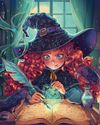
CONJURE MAGIC ILLUSTRATIONS
Daria Anako demonstrates her process for creating a whimsical piece of art with some spellbinding touches
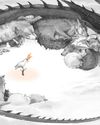
First Impressions
We discover the early influences that inspired the artist
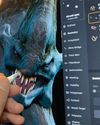
ZBrush for iPad
GAME CHANGER The desktop version of popular 3D sculpting software ZBrush has been redesigned for iPad - and it's brilliant
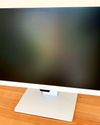
BenQ GW2786TC
GET AN EYEFUL Don't scrimp out on your health with a monitor that's kind on the eyes and good for creative tasks
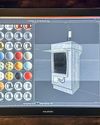
Huion Kamvas Pro 19
TABLET WARS An attractive pen display does an excellent job of balancing price and performance as it sets out to challenge its rivals in the mobile marketplace
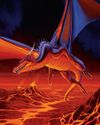
DRAGON OFORCEC
Legendary D&D artist Larry Elmore explains the keys to crafting timeless fantasy art.
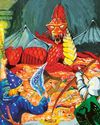
DUNGEON MASTERS
ImagineFX marks the milestone 50th anniversary of the launch of Dungeons & Dragons with a look at its rich tradition of illustration
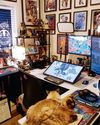
Erik Ly
Gamer's haven Why the artist enjoys a maximalist aesthetic more than the minimalist approach.
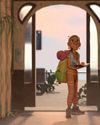
2D meets 3D: How the workflows are merging
Interdimensional As VFX and animation evolve and tools become more accessible, Tanya Combrinck asks whether the separation between the mediums is reducing